#Jobs
Chevrolet Volt's Discontinuation Leaves Battery Plant Employees Out of a Job
The vehicle they provide batteries for has less than three months to live, and this week brought news to 50 workers at General Motors’ Brownstown Battery plant that their positions are even more short-lived. In a filing with the state of Michigan, GM said it will cut 37 hourly and 13 salaried workers at the Detroit-area facility, adding an extra dollop of job losses to the mass culling announced late last month.
If the idea of owning a plug-in hybrid with real electric range tickles your fancy, your time’s running out fast.
Union Set to 'Waste General Motors' in Canada
It’s been roughly a month since General Motors announced it would be shuttering Oshawa Assembly, leaving the facility’s nearly 3,000 employees and Canada’s auto union more than a little annoyed. Unifor leadership has said it intends to meet with GM executives on December 20th and discuss the automaker’s plans for the Oshawa facility in Detroit. However, the rhetoric coming from union head Jerry Dias makes the upcoming meeting sound more like a mafia hit than a labor negotiation.
“GM is leaving Canada, and we’re not going to let them,” Dias told reporters. “We are going to waste General Motors over the next year. Waste them.”
Ford's Car Cull Decision Spills Over to Michigan Workers [Updated]
The decision to ditch all passenger cars save for the Mustang didn’t lead to immediate pain among Ford’s American workforce, but it soon will. As the automaker’s restructuring plan has only just begun, Ford found itself spared from the kind of vitriol flung at rival General Motors, which recently outlined a workforce reduction of up to 15,000 employees.
But pain is coming — to Ford’s Van Dyke transmission plant in Sterling Heights, Michigan. Unlike the Midwestern workforce switcheroo that followed shift cuts at two plants last month, it doesn’t look like every worker will find a new home this time.
GM Starts the Formal Process of Cutting, Promises Jobs for Hourly Workers
It won’t be a joyous Christmas for many General Motors workers. As it embarks on a wide-ranging cost-cutting plan, GM plans to cull six models and mothball five plants in the U.S. and Canada, eliminating up to 15,000 jobs in the process.
On Friday, the automaker said the process of notifying federal agencies of its plans has begun. It also offered up a glimmer for nervous workers.
It Begins: Ford Restructuring Ends Production at Blanquefort Plant in France
As part of Ford’s massive restructuring plan, which is said to focus primarily on its European assets, the automaker will end assembly at its Blanquefort transmission plant in France next year. Its 850 employees will now have to find gainful employment elsewhere by August.
However, there was a brief glimmer of hope after transmission supplier Punch Powerglide (encouraged by the French government) launched a bid to purchase the facility and rescue it from being shuttered.
“Despite thorough and rigorous talks over the past nine months, and the best efforts of both sides, the plan put forward by the potential buyer presents significant risks,” Ford said in a statement. “We do not believe that the prospective buyer’s plans offer the level of security or protection, or limit the risk of possible future job losses, that we would like for the employees.”
25k or No? Ford CEO Discounts Job Loss Claims
Earlier this week we mentioned that Ford’s restructuring plan might closely mimic General Motors’ strategy — resulting in widespread job losses. That theory was backed by an analysis from Morgan Stanley, which presumed the Dearborn-based automaker is likely to surpass GM in terms of layoffs, based on how much each intends to free up. Back in July, Ford said it would spend roughly three to five years on its $11 billion restructuring. All told, the financial services company believes the Blue Oval might shed at least 25,000 positions.
In the report’s wake, Ford CEO Jim Hackett is urging everyone not to panic. On Tuesday, he said Ford never provided numbers to Morgan Stanley analyst Adam Jonas, who estimated the significant employee reduction just one day earlier.
'There Isn't Anything to Build': GM Canada Prez Opens Up About Oshawa Assembly Closure
Despite ongoing turmoil in the country’s oilpatch, with the government of Alberta paying to have white Dodge Durango R/T SUVs project a constantly updating tally of money lost due to discounted Canadian oil prices onto the sides of downtown Ottawa buildings, the big economic story north of the border remains General Motors.
After squashing rumors of a plant closure during the last round of union bargaining, the automaker announced late last month that the city of Oshawa, Ontario’s worst fears would indeed come true. Oshawa Assembly will close by the end of 2019, leaving some 2,500 GM workers out of a job.
It’s not the kind of situation a newly minted company president wants to preside over, but that’s the plate Travis Hester was handed from the bigwigs in the Renaissance Center.
Ford Running Out of Focus Sedans; What About Jobs?
Ford’s decision to abandon sedans and non-utility hatchbacks is quickly coming to a head. While the choice rubbed many of us the wrong way, we attempted to view the situation through the lens of business and urged everyone not to panic if they wanted to purchase a Fusion or Focus sedan before they were all gone.
While we’re still not going to tell you not to panic, you might want to start making some moves if you’re still interested. Michael Martinez, Automotive News’ go-to guy for all things Ford, just claimed that the automaker only has about 12,000 Focus sedans left in its inventory.
Ford Cuts Factory Shifts, Comes Out Looking Like the Golden Child
Have you heard about that other American automaker — the one that doesn’t callously ruin lives? This question, no doubt percolating inside the craniums of U.S. lawmakers and pundits, doesn’t need to be spoken to be heard.
What would normally be a simple announcement of a production increase at one plant and a decrease at two others took on a symbolic nature this week. Ford wants to build more large SUVs but requires fewer cars. Thanks to a quirk of geography, no layoffs are planned — something that can’t be said of GM’s scorched earth plan, right?
Fiat Chrysler Substituting Fiat Production, Adding More Jeeps in Italy
During Fiat Chrysler CEO Sergio Marchionne’s final days, he said his company would begin prioritizing Jeep production in Europe. This of course comes at the expense of the Fiat brand, which lost a sizable hunk of the European market after 2009 and appears to be outright failing in the United States.
While the brand gained back some of that lost ground east of the Atlantic over the past two years, Fiat’s Jeep stablemate took off like a rocket after 2013 — effectively tripling its share of the European market. Eager to cater to the ever-changing tastes of consumers, FCA is going to stick with Jeep and make some money. As a byproduct, the company thinks it may be able to revitalize Italy’s manufacturing industry, bolster overall volume, and get some laid-off employees back onto the factory floor.
However, it’s not just Jeep that’s getting special treatment. FCA intends to do the same for Alfa Romeo and Maserati, as their products boast higher margins than anything Fiat builds.
GM Offers Buyout to 18,000 Salaried Employees
Wednesday morning, General Motors announced third-quarter 2018 earnings “reflecting profitability in all core operating segments.” Operating profits were at $2.5 billion, with North American profit margins hovering around 10.2 percent thanks to healthy truck sales. All in all, things were looking pretty good.
Then GM announced a plan to extend buyouts to salaried employees in the region with 12 or more years experience in order to cut costs. Roughly 18,000 salaried employees are said to be eligible for voluntary severance packages. The reason? General Motors says it wants to do this while the company is still healthy, which sounds like a pretty strong hint that bad times are ahead.
Amid Cross-border Feud, a Pricier Dodge Challenger Looks More Likely Than Ever
Man, if you live south of the 49th parallel, you missed quite a hubbub yesterday evening. Actually, Americans likely caught a whiff of it, as U.S. President Donald Trump’s lengthy post-UN press conference Wednesday covered a lot of topics, including the one that had Canucks up in arms.
Up here in the Great White North, a country some commenters would prefer to never see mentioned (as this writer apparently mentions it ALL THE TIME), trade remains an understandably hot topic. Canada hasn’t reached a renegotiated free trade agreement with the U.S., unlike Mexico, and there’s a Sunday deadline looming to sign on to the U.S.-Mexico accord. Tick tock. Among other planks, Canada wants to protect its dairy cartel — an entity not universally loved up here, as it greatly increases the price of common food staples on store shelves. However, protecting jobs in that sector means risking jobs in the larger auto sector, a crucial industry whose vehicles Trump has threatened to tax to the tune of perhaps 25 percent. Auto parts could see a 10 percent tariff.
Canada exported $48.8 billion worth of vehicles in 2016.
Toyota, Honda, and the Detroit Three all have assembly plants in Ontario. Last night’s news conference brought nothing but worry to the nearly 200,000 people employed in the vehicle and parts manufacturing sector. What would it mean if Trump pulls the tariff trigger? And is Canada blameless in not yet reaching a deal?
Will the Fuel Efficiency Rollback Help Employment?
President Donald Trump was obsessed with U.S. employment long before being sworn in as Commander-in-chief. In fact, the jobs rhetoric played a major role in swaying traditionally democratic voters in states like Michigan. The promise of manufacturing positions, the kind of work American used to be known for, was too tempting for some living in the Rust Belt to ignore.
“We’re going to work on the CAFE standards so you can make cars in America again,” he told Detroit’s auto workers in March 2017, referencing the Corporate Average Fuel Economy. “We’re going to help the companies, and they’re going to help you.”
Those fuel economy rollbacks are now fast approaching, after the National Highway Traffic Safety Administration and Environmental Protection Agency released their official proposal last week. But will it truly help bolster employment rates in the United States? The answer depends largely upon who you ask.
Ailing Motorcycle Industry Could Be Canary in Coal Mine for Automakers - Part Two
Last week, we discussed how the motorcycle industry’s total failure to entice new riders for over a decade has come back to bite it in the ass. Two-wheeled ownership declined drastically in the United States after the Great Recession and never really bounced back. Blame a disinterested population of youngsters with less discretionary funds and few entry-level options to consider.
I speculated that automakers could be on a similar path, despite the passenger car segment being more of a necessity for average commuters and less apt to collapse outright. But that isn’t to presume they might not be subject to similar pitfalls, and we’ve a new one to consider. Harley-Davidson, which serves as the poster child for the motorcycle industry’s current crisis, recently announced it will end all U.S. production of motorcycles sold in Europe.
Those bikes will now be manufactured overseas. The company said in a regulatory filing with the U.S. Securities and Exchange Commission that retaliatory tariffs levied by the European Union on motorcycles exported from the U.S. jumped from 6 percent to 31 percent. Harley-Davidson’s already expensive products come at an additional premium in Europe, and the the company estimates the new fines will add another $2,200 per motorcycle, on average.
Trade War Watch: Volvo Worried About New U.S. Factory, Germans Want Tariffs Killed Entirely
The ground beneath the factory Volvo Cars opened Wednesday in South Carolina grew shakier after company executives warned that the U.S.-China trade dispute could undo plans to create up to 4,000 auto jobs in the state.
As you probably know, Volvo is currently owned by Chinese automaker Geely — which has a lot to lose if trade relations break down. Geely intends to export Volvo’s American-built cars to markets outside the United States. The situation’s a problematic one, as Volvo also imports the bulk of its U.S. market vehicles and any economic hurdles would surely gum up the works.



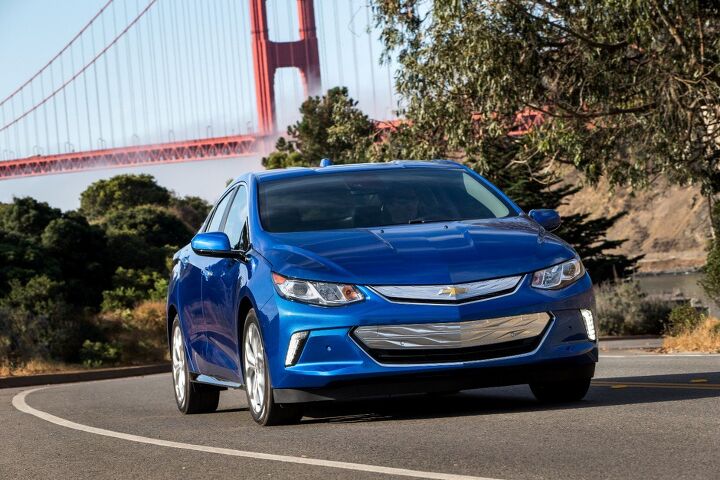

![Ford's Car Cull Decision Spills Over to Michigan Workers [Updated]](https://cdn-fastly.thetruthaboutcars.com/media/2022/07/10/8918158/ford-s-car-cull-decision-spills-over-to-michigan-workers-updated.jpg?size=720x845&nocrop=1)


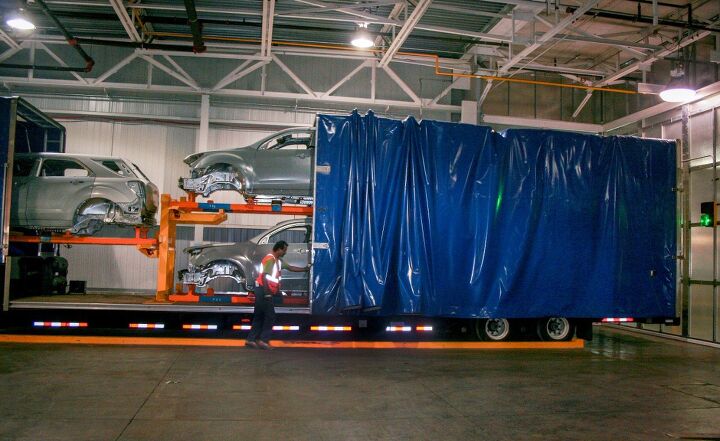


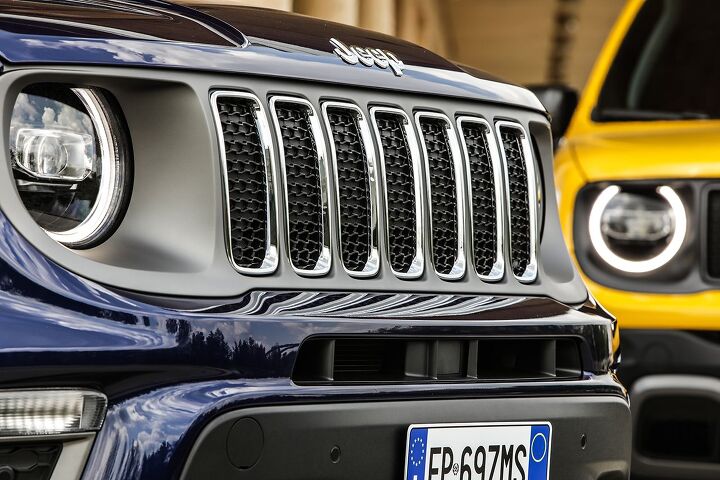
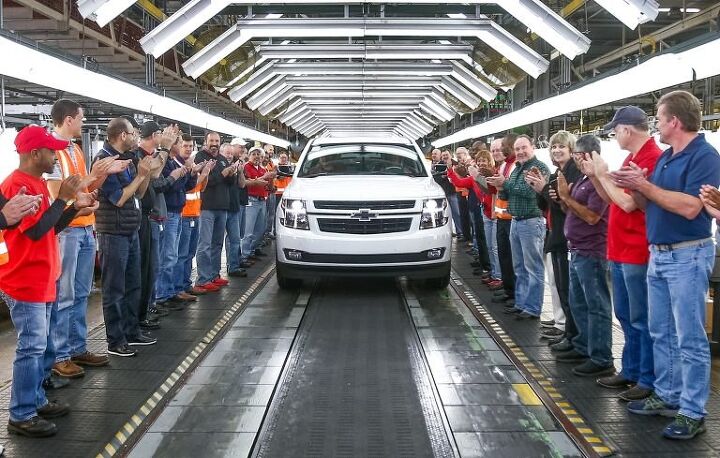
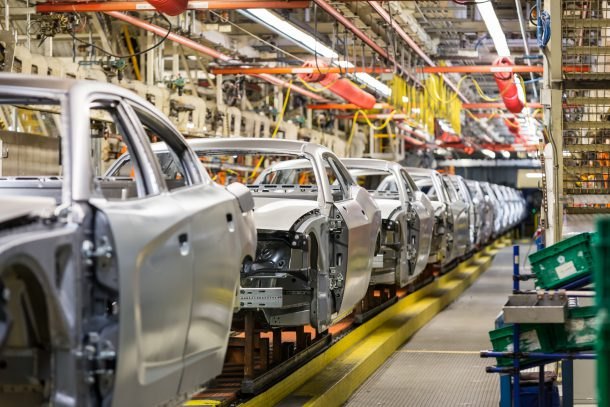
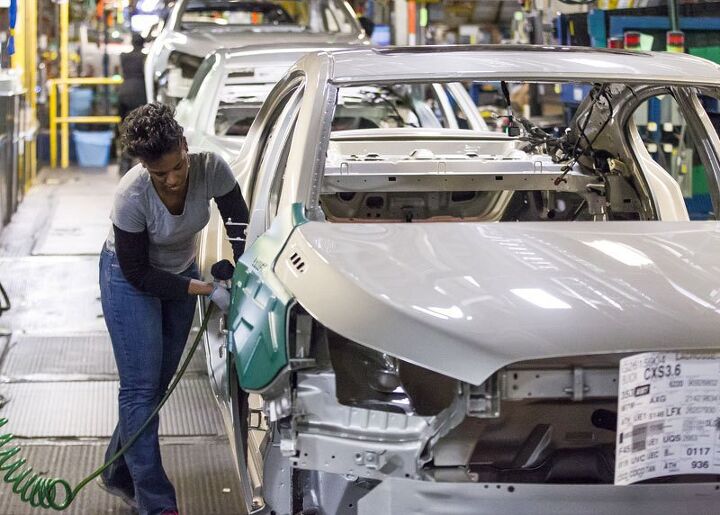













Recent Comments